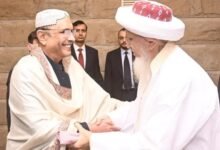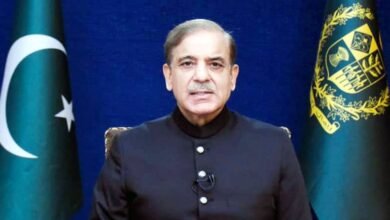ISLAMABAD:
The federal government spent only Rs76 billion on development projects in the first four months of this fiscal year, equivalent to one-fourth of the authorised funds by the Planning Ministry.
Development expenses remained at Rs76 billion, contrasting with the Rs301 billion authorisation under the Public Sector Development Programme (PSDP) 2023-24, as stated by the Ministry of Planning on Wednesday.
The significant gap between authorisation and actual expenditures underscores challenges in the fund release process, slow progress on schemes, and the capacity to spend allocated funds. Deliberate slowing down of development expenditures aims to offset higher current expenditures.
The Rs76 billion spending accounted for 8% of the annual budget, causing delays in crucial projects but compensating for fiscal slippages in other areas. During recent review talks, the International Monetary Fund (IMF) reduced its projection for Pakistan’s development spending to Rs782 billion, Rs168 billion less than the National Assembly’s approved allocation.
Sources say that according to IMF projections current expenditure in the fiscal year may reach around Rs14.6 trillion, an increase of Rs1.24 trillion. The global lender maintained the overall primary balance target at 0.4% of GDP, or Rs401 billion, requiring significant revenue efforts and subsidy reductions. Overall, the IMF projected a budget deficit off by Rs1.23 trillion against the National Assembly’s approved plan in June.
The IMF has deemed Pakistan’s PSDP “unaffordable” due to limited fiscal space, noting a total cost of Rs12 trillion to complete approved projects, requiring over 14 years.
The Planning Ministry’s report showed that 36% of total spending in four months, or Rs27.2 billion, was allocated to parliamentarians’ schemes. The last PDM government authorised Rs61.3 billion spending for these schemes, but the interim government slowed down the process. The annual budget is Rs90 billion.
The interim government has also established a steering committee for approving parliamentarians’ schemes, a move that may raise many eyebrows.
The Secretary of Finance, Imdadullah Bosal, stated last week that funding for parliamentarians’ schemes would align with the guidelines of the Election Commission of Pakistan (ECP).
Read: LG members urge ECP to lift ban on development projects
Low releases have adversely impacted the country’s foreign exchange reserves due to less-than-anticipated foreign lending for development schemes. For the current fiscal year, the government estimated the release of Rs75 billion in foreign loans, but disbursements reached only Rs26.2 billion in four months.
According to the Ministry of Finance’s guidelines, PSDP spending can be equal to 35% of the annual budget of Rs333 billion in the first six months of the fiscal year. At the current pace, the government would hardly reach even Rs200 billion.
A planning ministry official stated that the expenditure figure improved to over Rs100 billion as of this week but still does not match the pace needed to spend the entire development budget.
Except for the Sustainable Development Goals (SDGs), an acronym used for parliamentarians’ schemes, spending did not exceed the threshold in almost all ministries.
Development budget allocations for provinces, special areas, Azad Jammu & Kashmir, and Gilgit-Baltistan were affected in the first four months. Against the annual allocation of Rs170 billion, only Rs26 billion was spent, the second biggest spending head after parliamentarians’ schemes.
Spending on Pakistan Atomic Energy Commission (PAEC) projects slowed down. The National Transmission and Dispatch Company (NTDC) and PEPCO spent Rs2.3 billion on its projects against the annual allocation of nearly Rs56 billion.
Read more : Sindh, Balochistan get 15 new schemes in PSDP
The National Highway Authority (NHA) has an annual budget of Rs157 billion. The planning ministry authorised Rs42 billion in spending, but actual expenses remained at only Rs9.3 billion.
There was only Rs250 million in spending against the Rs80 billion special program for Prime Minister’s initiatives. The interim government stopped these releases, which former Prime Minister Shehbaz Sharif had set aside for projects of his own liking.
Published in The Express Tribune, November 23rd, 2023.
Like Business on Facebook, follow @TribuneBiz on Twitter to stay informed and join in the conversation.





